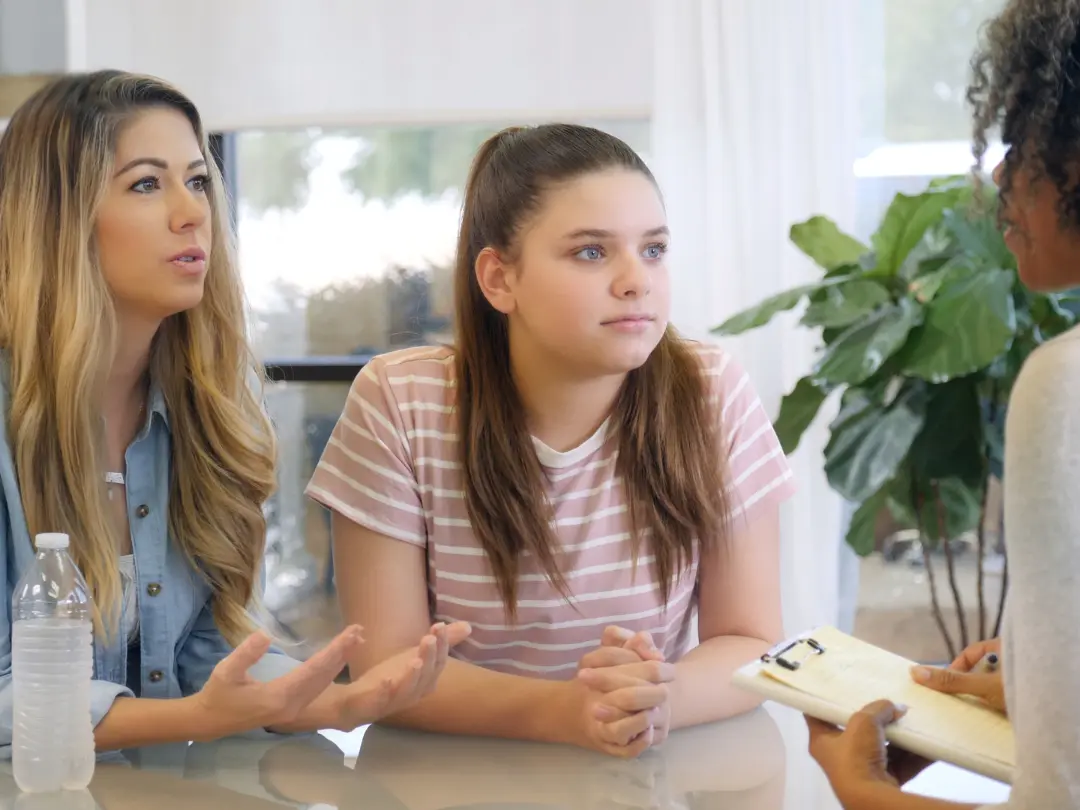Recognizing warning signs of a potential relapse is an important step in recovery from the eating disorder you have worked so hard to battle. When you know what to look for, you can support your child through these warning signs and avoid slips or relapses and maintain recovery, setting them up for a healthy and happy life.
Understanding Relapse
First, we want to emphasize that a slip in behavior or thought is not a relapse. We actually learn from slips and are able to grow from them. However, when we fall down that slippery slope, a relapse can occur. When we talk about relapse, we’re referring to the reappearance of the symptoms and behaviors associated with a specific issue– like an eating disorder. Relapse can be a distressing experience, especially for parents that have watched their child go through so much already. It can be especially difficult when it appears that the eating disorder has taken over. Remember that a relapse can be an important part of the recovery process if we catch it early.
Even in an upward spiral, you may struggle with the same eating disorder triggers over and over. But recognizing the warning signs of a relapse is the first step. We like to create relapse prevention plans. Read on to learn about certain changes in behavior, appearance, and mood that could be a sign of an eating disorder relapse. Remember that your relapse prevention plan will be unique to your child and family.
Recognizing the Warnings Signs of an Eating Disorder Relapse
Create a list of the top two or three behaviors or thoughts that may lead to a relapse.
After you do this, develop a plan of what you can do to prevent it. For example, if your child begins to count food, develop strategies to stop this behavior. If you notice your child asking to walk more than the team has allowed, develop strategies for this. This plan will be unique for your child and family. The important part of this plan is that you stick to it!
Social isolation and withdrawal can be a sign of an eating disorder relapse.
It is difficult to maintain relationships with an eating disorder. Therefore, when your child is showing signs of a relapse, you may notice social isolation or withdrawal. Keep a line of communication open for them, but make guidance the priority– not shame. If you notice your child withdrawing from activities, talk to them and find activities that will be enjoyable.
Self-criticism can be a sign of an eating disorder relapse.
Negative self-talk and dissatisfaction with one’s body image can be a sign that your child is in danger of relapsing into old disordered eating habits. If your child is exhibiting low self-esteem, obsessing over their appearance, or engaging in restriction or dieting, they could be struggling mentally.
Try to model positive and uplifting affirmations that celebrate all the wonderful things you can accomplish with your physical body, and let them know what you love about them, too. “I love those pants on you!” can be easily switched to “I am constantly amazed by your ability to stay on top of trends!”
How to Protect Your Child From an Eating Disorder Relapse
Create a safe space for conversation.
Establish a safe environment for your child to communicate their needs. The biggest part of that– and perhaps the hardest part– is just listening. By encouraging an open dialogue, you’ll be able to gain insight into your child’s mental health and recognize the warning signs of a relapse into anorexia, orthorexia, bulimia, or other disordered eating habits.
Seek trauma-informed care and therapy.
Most parents would do anything to protect their children, but when it comes to mental health and eating disorders, they may not have the resources they need. If you are worried that your child could have an eating disorder relapse, seek professional help. It’s a good idea to find a registered dietitian or licensed counselor with a background in trauma and therapy. Don’t forget– early intervention is the greatest factor in ED recovery.
Discover Healing with Eating Disorder Treatment and Therapy in Columbia, SC
If you suspect that your child may have an eating disorder or your child is in danger of relapsing, it’s time to seek professional help. At New Hope Counseling and Wellness, we understand the connection between trauma, mental health, and disordered eating.
Our experienced team of registered dietitians and certified intuitive eating counselors are committed to providing trauma-informed care, therapy, and a supportive community! Let your child discover hope and healing here with eating disorder treatment and our individual nutrition therapy and counseling plans.








